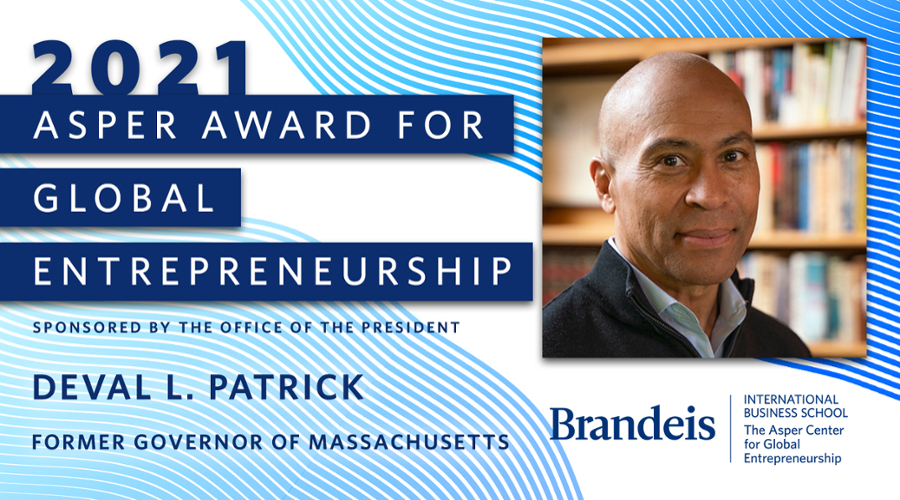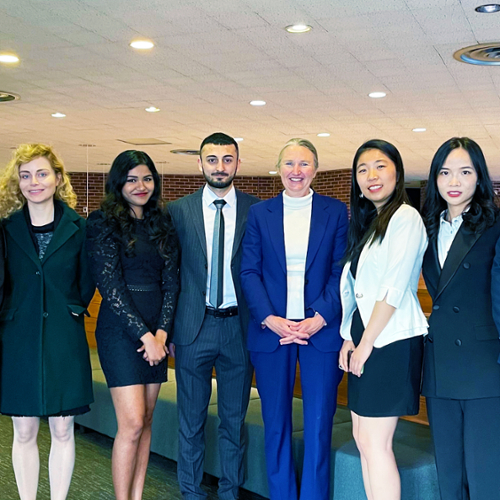
Governor Deval L. Patrick will receive the Asper Award for Global Entrepreneurship on April 22.
Former Massachusetts Governor Deval L. Patrick knows a thing or two about entrepreneurship.
During his eight years in office, Patrick launched initiatives stimulating health care, clean energy and biotechnology. He helped promote international trade and forge stronger ties between the business and startup communities in Massachusetts and Israel. And by the end of his second term, the state ranked first in the nation in both energy efficiency and entrepreneurship, among other areas.
On April 22, Patrick will receive the 2021 Asper Award for Global Entrepreneurship. The award is given annually to a person who best exemplifies Brandeis International Business School's values of entrepreneurial spirit and independent thinking.
The event, which is sponsored by the Office of the President and part of the International Business School’s Business of Climate Change program, will also feature a discussion about the future of capitalism between Patrick and Lisa M. Lynch, the Maurice B. Hexter Professor of Social and Economic Policy at the Heller School for Social Policy and Management.
In anticipation of the award ceremony, Patrick reflected on systemic inequity, impact investing and the power of collaboration.
We need to balance and find ways to address the interests of all stakeholders (workers, neighbors, the planet, as well as owners), not just shareholders. It’s about long-term value, not just short-term gain.
Hiring, promoting and recognizing diverse talent is basic. But being anti-racist, as author, professor and activist Ibram X. Kendi has described, is also what leadership requires today.
Impact investing is about being intentional in driving environmental and social performance. It is, by definition, stakeholder capitalism. Think of it as “the laboratory where capitalists work to reform capitalism.”
Innovation is central to the Commonwealth’s economy, and innovation is global. Just as there is talent in every domestic community, there is talent, creativity and opportunity in communities around the world. I believe we should open our economic and cultural doors out to the world, not just to each other.
Collaboration is a powerful, even transformative gene. Not only can it lead to shared prosperity, it can lead to shared understanding and just solutions.
Featured Stories
News Categories
@BrandeisBusiness Instagram
View this profile on InstagramBrandeis Intl. Business School (@brandeisbusiness) • Instagram photos and videos

December 20, 2021
The push she was looking for
December 9, 2021
'How can we not be grateful?'
November 30, 2021
Lowering the temperature
November 23, 2021
Empowering girls in South Asia through sports